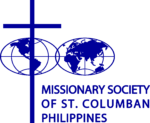SYNOD ON SYNODALITY
WE DO NOT COPY, WE CREATE

By Marvin Salarda, Columban Student
I am a nurse by profession but I was not able to practice it. Instead, I entered the culinary world and managed my two restaurants until I joined the Missionary Society of St. Columban. Prior to joining the formation for Columban priesthood, cooking was my hobby and the kitchen was my most favorite place on earth. My friends and I used to challenge ourselves to create a dish using only ingredients contained in a mystery box. These ingredients are revealed only just before cooking.
For some strange reason, I remembered the mystery boxes when I heard about the synod on Synodality process that Pope Francis started in 2021 and was extended until 2024. As a process, this will allow bishops to consult with Catholics, from parishioners all the way up to priests, in a spirit of collaboration and openness. This process includes official dialogue with activists who openly dissent from church teachings.
Following the lead of the renewal of the Church as proposed by the second Vatican Council, this common journey together is both a gift and an ongoing task. In reflecting together on the journey that has been made so far, we realize that another person’s experiences and perspectives, guided by the Holy Spirit according to the Preparatory Document, is at the service of the synodal journey. The process that is truly synodal involves listening, discerning, and participating. It has brought me to a deeper reflection, thinking about my own experiences of cooking from a mystery box.
In our class in Effective Parish Group Organizing, Fr. Dennis Cagantas ended our semester with the book of Peter Block on Community, which referred to communities not as problem-solution orientated but possibility-oriented. The book reminds us to focus not on what we plan to happen or just think will happen or whether things will get better but rather to work with possibilities that will allow us to create something new. It is a declaration of a future that has the quality of being and aliveness. With cooking, we are always so used and fixated with the measurements, procedures to follow and exact ingredients to use. Oftentimes, we have the need to make something common and predictable. We cook adobo as adobo (a dish made of pork or chicken cooked in soy sauce and vinegar), kare–kare as kare-kare (a dish with thick peanut sauce), sisig as sisig (a dish made from Pig’s face and belly seasoned with lime, onions, and chili peppers). If we lack one ingredient, we think we cannot call it anymore with the name we normally would. What is unique about mystery cooking is that we create a new dish from what is available. Similarly, the process of true synodality allows us to “listen” to each of the ingredients which are available in front of us, “discern” its use, so we can “participate” in creating something that excites us and brings us awe. Isn’t that exciting and enjoyable to do?
As Peter Block says, the “possibility” conversation gives form to the gifts of those brought into the center of conversation; that each person’s possibility counts, especially those of people whose voices are quieted or marginalized by the drumbeat of retribution. People are like ingredients; they have their own gifts, they have their own purpose and they have their own essence to contribute to a new and delicious dish. This is only possible if the cook knows how to create with the ingredients around him.

